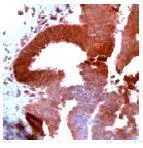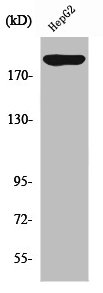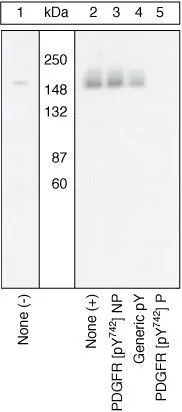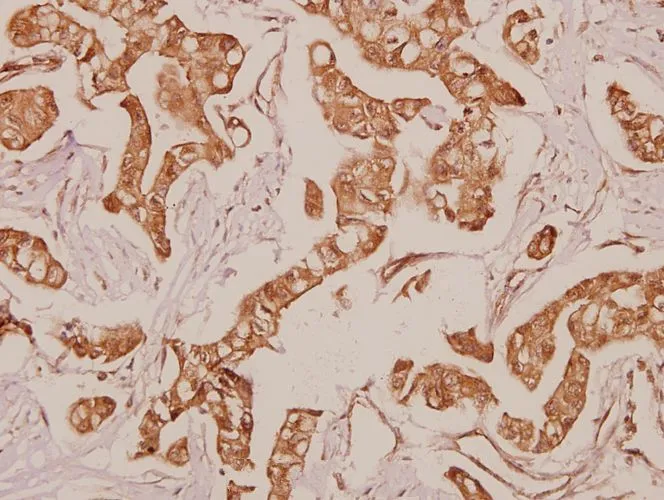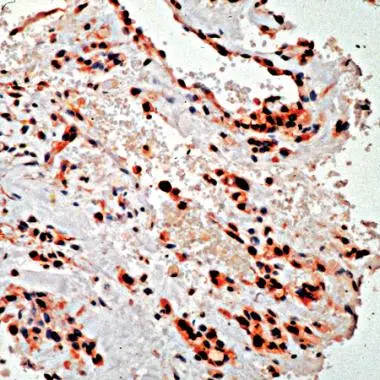
Human Ovarian Carcinoma stained with anti-PDGFR alpha antibody (GTX15501)
PDGF Receptor alpha antibody (Ready-to-use)
GTX15501
ApplicationsImmunoHistoChemistry, ImmunoHistoChemistry Paraffin
Product group Antibodies
TargetPDGFRA
Overview
- SupplierGeneTex
- Product NamePDGF Receptor alpha antibody (ready-to-use)
- Delivery Days Customer9
- Application Supplier NoteIHC-P: Use at an assay dependent dilution. Staining of formalin fixed tissues requires boiling tissue sections in 10mMcitrate buffer, pH 6.0 for 10 min followed by cooling at room temperature for 20 min. Optimal dilutions/concentrations should be determined by the end user.
- ApplicationsImmunoHistoChemistry, ImmunoHistoChemistry Paraffin
- CertificationResearch Use Only
- ClonalityPolyclonal
- ConjugateUnconjugated
- Gene ID5156
- Target namePDGFRA
- Target descriptionplatelet derived growth factor receptor alpha
- Target synonymsCD140A, PDGFR-2, PDGFR2, platelet-derived growth factor receptor alpha, CD140 antigen-like family member A, CD140a antigen, PDGF-R-alpha, alpha-type platelet-derived growth factor receptor, platelet-derived growth factor receptor 2, platelet-derived growth factor receptor, alpha polypeptide
- HostRabbit
- IsotypeIgG
- Protein IDP16234
- Protein NamePlatelet-derived growth factor receptor alpha
- Scientific DescriptionThis gene encodes a cell surface tyrosine kinase receptor for members of the platelet-derived growth factor family. These growth factors are mitogens for cells of mesenchymal origin. The identity of the growth factor bound to a receptor monomer determines whether the functional receptor is a homodimer or a heterodimer, composed of both platelet-derived growth factor receptor alpha and beta polypeptides. Studies suggest that this gene plays a role in organ development, wound healing, and tumor progression. Mutations in this gene have been associated with idiopathic hypereosinophilic syndrome, somatic and familial gastrointestinal stromal tumors, and a variety of other cancers. [provided by RefSeq, Mar 2012]
- Storage Instruction2°C to 8°C
- UNSPSC12352203

